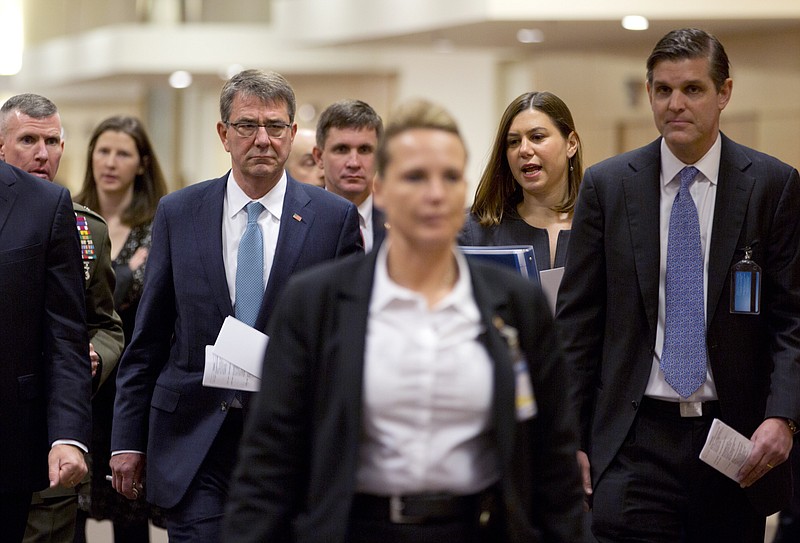BRUSSELS (AP) - NATO defense ministers should approve plans Wednesday for increasing NATO's forward presence in Eastern Europe to deter Russia, and discuss what the alliance might do to stanch the ongoing flow of migrants into Europe, the organization's secretary-general said.
"Today and tomorrow, we will make decisions to strengthen our defense and deterrence," NATO chief Jens Stoltenberg said as he arrived for the start of the two-day meeting.
Beefing up NATO's presence in Poland and other frontline allies close to Russia "will send a clear signal," Stoltenberg said. "NATO will respond as one to any aggression against any ally."
Measures being considered include stockpiling military equipment, building new infrastructure, and, in the NATO chief's words, greater and more frequent "forward presence of multinational forces."
U.S. Defense Secretary Ash Carter and his counterparts are expected to discuss what other countries can do following the Obama administration's Feb. 2 announcement that it wants to quadruple spending on U.S. troops and training in Europe as part of an accelerating effort to deter Russia.
A senior NATO official, speaking on condition of anonymity because he was not authorized to discuss internal alliance deliberations, said the U.S. hopes its European NATO partners commit to new investments in deterrence that would correspond to the $3.4 billion in extra spending and troops, equipment and training moves the Pentagon is proposing.
The NATO official indicated, however, that firm commitments by the Europeans may be slow in materializing.
Following a request by Turkey, ministers will also discuss what NATO could do to help slow the influx of migrants into Europe by sea, Stoltenberg said.
"We all understand the concern and we all see the human tragedy," Stoltenberg said. He said the discussions could lead to a decision to use NATO air or sea assets to help combat people smuggling.
